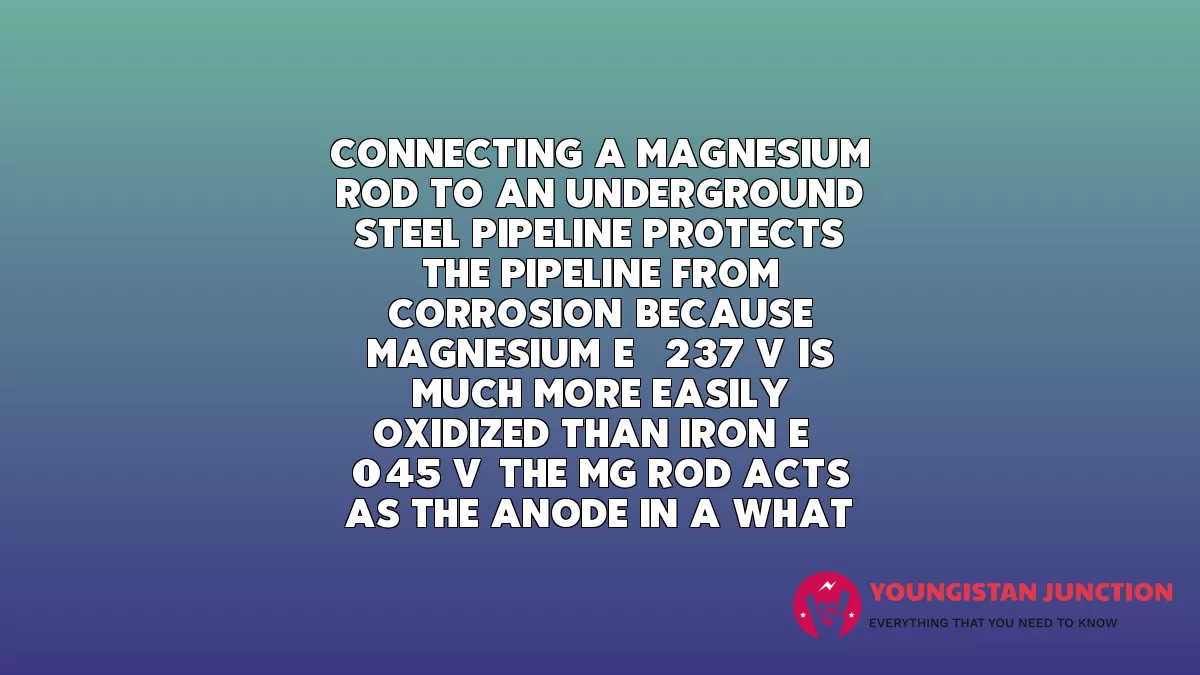Connecting a magnesium rod to an underground steel pipeline protects the pipeline from corrosion. because magnesium (e° = −2.37 v) is much more easily oxidized than iron (e° = −0.45 v), the mg rod acts as the anode in a what?
- Correct Answer: voltaic cell
- anode cell
- stimulation cell
- galvanic cell
Explanation: Connecting a magnesium rod to an underground steel pipeline protects the pipeline from corrosion. Because magnesium (E° = −2.37 V) is much more easily oxidized than iron (E° = −0.45 V), the Mg rod acts as the anode in a galvanic cell. The pipeline is therefore forced to act as the cathode at which oxygen is reduced. The soil between the anode and the cathode acts as a salt bridge that completes the electrical circuit and maintains electrical neutrality. As Mg(s) is oxidized to Mg2+ at the anode, anions in the soil, such as nitrate, diffuse toward the anode to neutralize the positive charge. Simultaneously, cations in the soil, such as H+ or NH4+, diffuse toward the cathode, where they replenish the protons that are consumed as oxygen is reduced. A similar strategy uses many miles of somewhat less reactive zinc wire to protect the Alaska oil pipeline.
More Random Questions
Ans: New Zealand
Ans: $9.3 billion
Ans: reverberation
Ans: Form 9
Ans: IICs Bangalore
Ans: Hard brake pedal
Ans: acclimatize
Ans: Jaipur
Ans: Supplies air to the engine
Ans: ten
Ans: pollutants
Ans: resistance
Ans: cyclic
Ans: autotrophs
Ans: China

